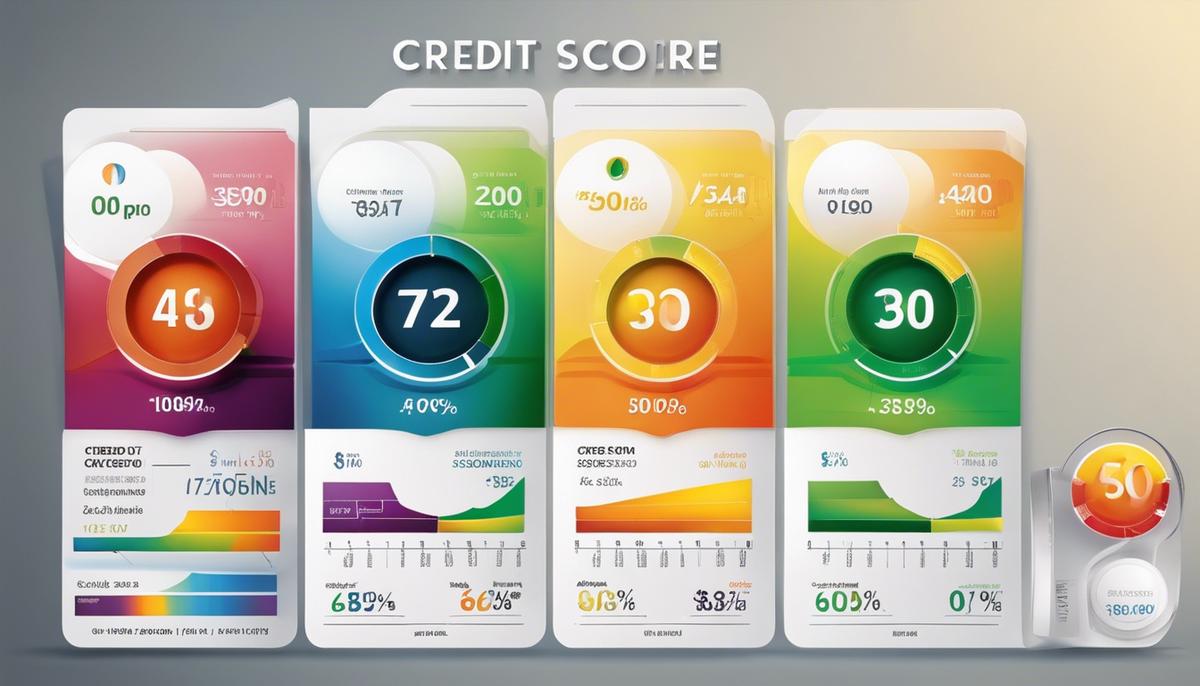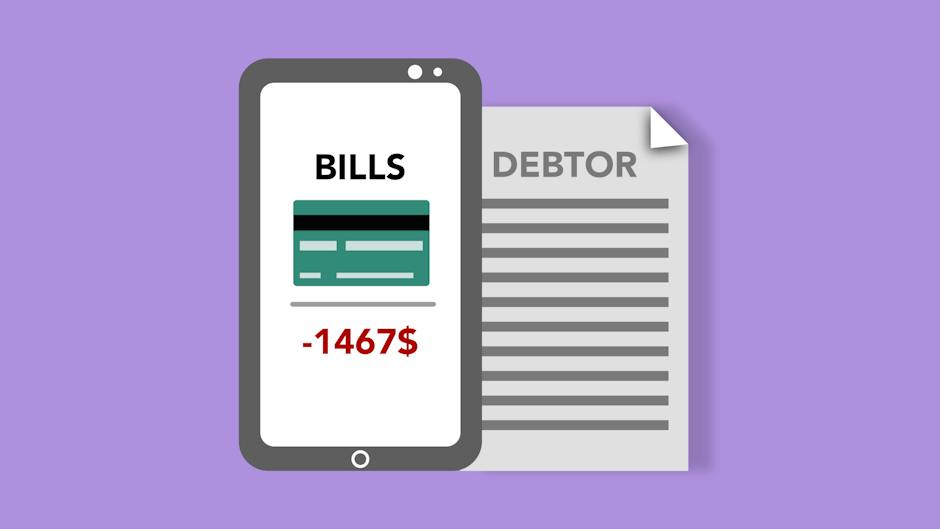Tips for improving your credit score.
In the intricate financial tapestry that constitutes our modern economy, a robust credit score emerges as a pivotal thread, holding significant sway over an individual’s fiscal prospects. Comprehending credit scores is analogous to grasping the rules of a complex game where the stakes are your financial future. As we navigate through the myriad of scoring models and grapple with the nuances distinguishing one’s creditworthiness, we embark on a journey to demystify the numerical expression that can unlock doors to opportunities or close them tight. This discourse serves as a map to guide you through the labyrinth of factors influencing credit scores and elucidate strategies for cultivating a credit history that stands as a testament to financial reliability and discipline.
Understanding Credit Scores
Unlocking the Power of Your Credit Score: A High-Value Asset in Today’s Economy
In today’s high-stakes financial landscape, a three-digit number could determine not just the kind of home you live in or the car you drive, but the very trajectory of your financial future. That number is your credit score, an economic barometer so potent that it can open doors to wealth or keep them firmly closed.
So, what is this make-or-break metric? A credit score is the numerical representation of an individual’s creditworthiness, distilled from their credit history. Think of it as a financial report card, but instead of grades, it provides lenders with a predictive snapshot of risk: the likelihood that you’ll repay borrowed money, be it for a credit card, a mortgage, or a student loan.
Credit scores range from 300 to 850. A score north of 670 is typically considered ‘good,’ marching upwards through ‘very good’ to an ‘exceptional’ score, which usually exceeds 800. A higher score equates to lower borrowing costs and better credit opportunities – it’s that simple and yet that complex.
Why does this matter? Credit scores matter because money, as they say, makes the world go ’round. With a robust credit score, financial leverage is at your fingertips. One can secure a mortgage at the most coveted rates, snag credit lines with the highest limits, and even influence employment opportunities. Insurance premiums can be lower, security deposits waived, and entrepreneurial dreams made significantly more attainable.
Conversely, a lackluster score can signal red flags to potential lenders. The ramifications? Higher interest rates, lower loan amounts, and in some cases, outright rejections. Forget the velvet rope; this is an economic moat, keeping the kingdom of favorable financing tantalizingly out of reach.
It’s clear then that credit scores wield enormous sway in the economic realm, but how can one navigate this terrain successfully? It starts with financial literacy – understanding the factors that sculpt your credit score. Timely bill payments, responsible credit usage, a diverse portfolio of credit accounts, and a history of prudent financial behavior can sculpt an impressive credit profile.
Credit scores evolve over time, much like a reputation, and they require the same meticulous attention to detail. This is not simply a matter of personal fiscal responsibility; it is a strategic maneuver in the grand chess game of personal finance. Savvy individuals leverage their credit scores to outmaneuver economic barriers and maximize opportunities for growth and prosperity.
In closing, the vaunted credit score is more than a number—it is a dynamic indicator of economic potential, a gatekeeper to a universe of financial possibilities. Its gravity cannot be overstated, nor can the importance of caring for it industriously. Your credit score: treat it well, and it will return the favor tenfold.

Factors Affecting Credit Scores
Maximizing Your Credit Score: Key Strategies for Financial Excellence
Attaining an exceptional credit score is not merely about understanding the basics; it’s about mastering the financial behaviors that signal reliability to lenders. Let’s dive into the crucial factors that are definitive in sculpting a robust credit score.
Payment History: Stellar Track Record Needed
Nothing speaks louder to creditworthiness than a flawless payment history. This is the heavyweight champion of credit score components, constituting a massive slice of the scoring pie. Ensure every bill is paid punctually—late payments are kryptonite to credit scores.
Credit Utilization: The Balancing Act
Credit utilization—the ratio of your debt to credit limits—is pivotal. The magic number? Keep balances below 30% of your credit limits. Better yet, aim for single-digit percentages. This demonstrates control and capacity, which are gold stars in the eyes of creditors.
Credit History Length: Time Is Your Ally
The length of credit history adds depth to your credit profile. A longer credit history can be a testament to sustained financial responsibility. Nurture your older credit accounts, as they’re the foundation upon which your credit reputation is built.
Mix of Credit: Diversify Your Portfolio
Credit scoring models smile upon a diverse mix of credit types—think installment loans, credit cards, retail accounts, and mortgages. A fusion of credit types showcases your ability to juggle various debt products adeptly.
New Credit: The Double-Edged Sword
While new credit can lead to a more robust credit profile, this is where strategy becomes crucial. Each new credit application can result in a slight, temporary ding to your score. The key is to apply for new credit judiciously—excessive credit shopping can signal risk.
Fine-Tuning for Accuracy: The Devil’s in the Details
Errors can cripple a credit score. A vigilant eye on credit reports is essential. Dispute inaccuracies swiftly to salvage your score from unjust blemishes. Think of your credit report as your business resume—accuracy is non-negotiable.
Engagement with Credit: A Lively Dialogue
A dormant credit history can’t paint a picture of your financial behavior. Regular, yet judicious use of credit speaks to active financial participation and competence. It’s about painting that portrait of financial trustworthiness that creditors are eager to see.
Credit scoring is not alchemy, but a science of patterns and behaviors. Embrace these strategies with meticulous attention to detail, and watch the doors open to lower interest rates, premium credit offers, and a financial profile that puts you ahead in the competitive marketplace. Remember, in the theater of credit, being a masterful conductor of these factors is what earns a standing ovation—and a stellar credit score.

Improving and Maintaining a Good Credit Score
Payment History: Stellar Track Record Needed
Assert dominance in your financial narrative by maintaining an immaculate payment history. Punctuality is not merely a virtue – it’s your ticket to credit score grandeur. Consistency is key; late payments are blemishes that taint your credit report for years. To prevent slips, automate your payments or set unmissable reminders.
Credit Utilization: The Balancing Act
The silent killer of many a credit score, high utilization, reveals a dependency on credit that alarms lenders. The golden rule? Keep balances low – under 30% of your credit limits across individual accounts and in aggregate. This shows both restraint and savvy in handling your finances, characteristics championed by credit titans.
Credit History Length: Time Is Your Ally
Patience is more than a virtue in the credit score arena — it’s an asset. Seasoned accounts lend weight to your financial dossier, providing a crystal-clear longitudinal view of a responsible borrower. Shun the temptation to close old accounts; a lengthy credit history amplifies your creditworthiness.
Mix of Credit: Diversify Your Portfolio
A one-trick pony has no place in a high-flying credit score strategy. Diversifying across different types of credit accounts – credit cards, retail accounts, installment loans, mortgages – showcases your adeptness at navigating various credit instruments. This credit mix signals to potential lenders a sophisticated understanding of credit management.
New Credit: The Double-Edged Sword
While growth is integral to business, indiscriminate expansion can be counterproductive. Similarly, opening new credit accounts sporadically can signal risk and dilute your credit age, thus denting your credit score. Time inquiries strategically and avoid sudden surges of credit applications.
Fine-Tuning for Accuracy: The Devil’s in the Details
A precision-engineered machine operates flawlessly. Treat your credit report with the same exactness. Audit your credit reports consistently for inaccuracies or anomalies. Dispute errors immediately – these are not mere typos, but potential underminers of your hard-won credit reputation.
Engagement with Credit: A Lively Dialogue
A dormant credit file reflects a narrative without vigor or progress. Engage with your credit by using, not abusing, your available credit lines. Active, but judicious, credit use fortifies your position as a polished credit user, indicating both responsibility and adeptness in the eyes of lenders.
Embrace these tactics with the same zeal you would approach a promising venture. Your credit score is not just a number; it’s a reflection of your financial ethos. Maintain it with the same diligence you apply to your most successful business endeavors, for it opens doors to boundless opportunities.

With the foundation laid and the pathways to credit excellence illuminated, the onus falls on each individual to vigilantly foster their credit standing. Embracing the responsibility for one’s financial health through informed decisions can lead to a cascade of benefits, from lower interest rates to enhanced loan prospects. As we continue to perpetuate the habits that engender a favorable credit score, we not only pave the way for our own financial stability but also contribute to the economic vitality that underpins our society. Your credit score is more than merely a number—it’s a reflection of your financial narrative, and with dedication and strategic action, it’s a story that can be shaped to your advantage.



